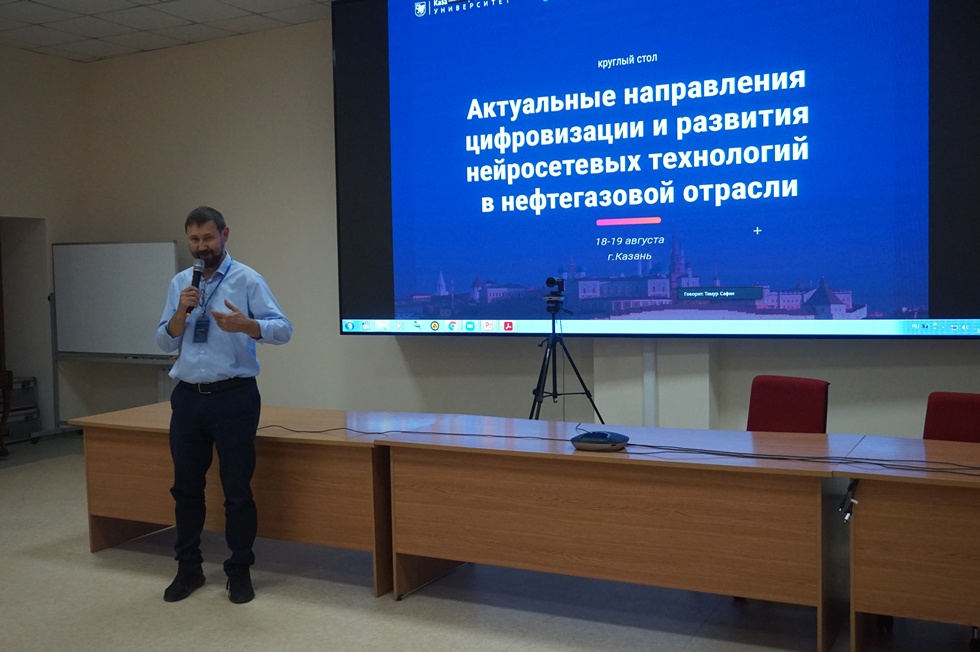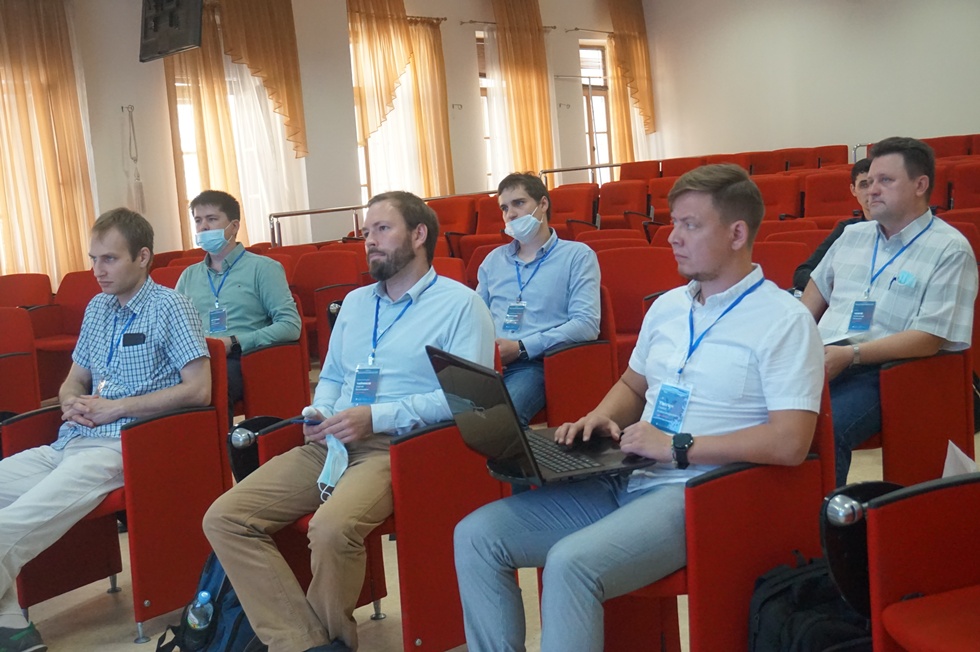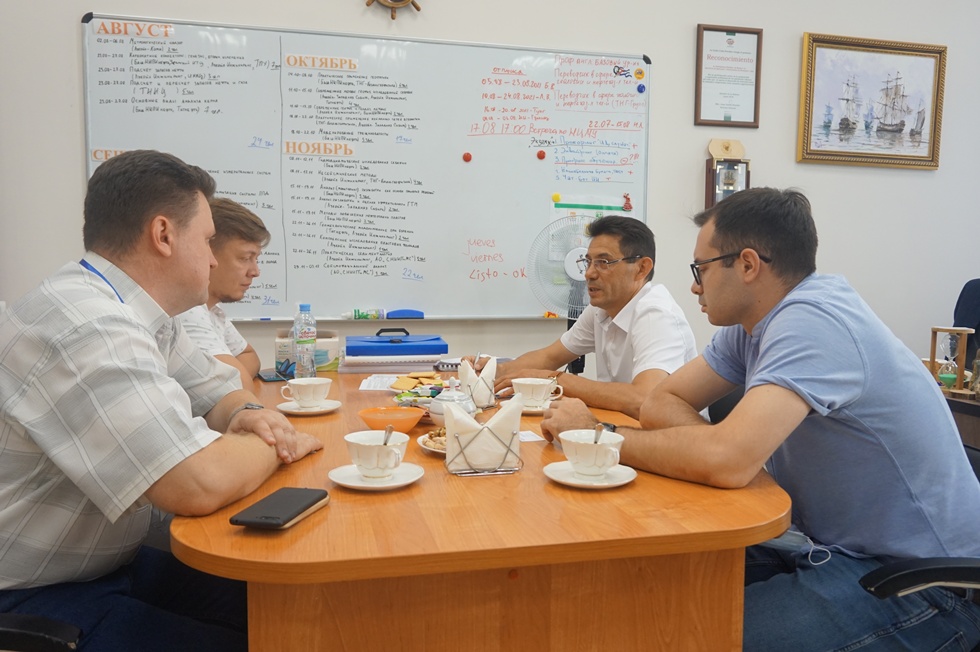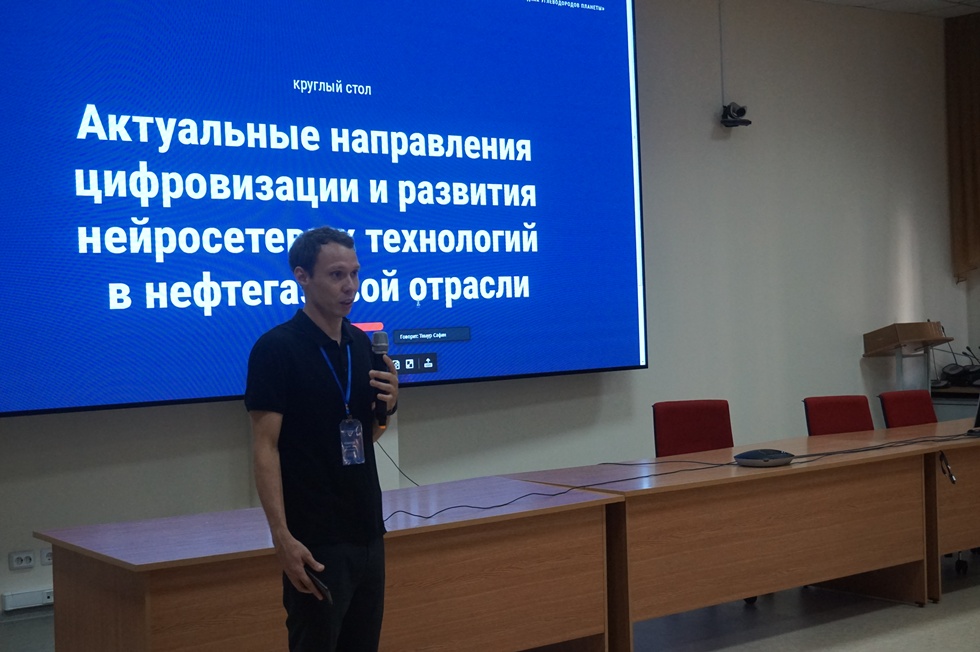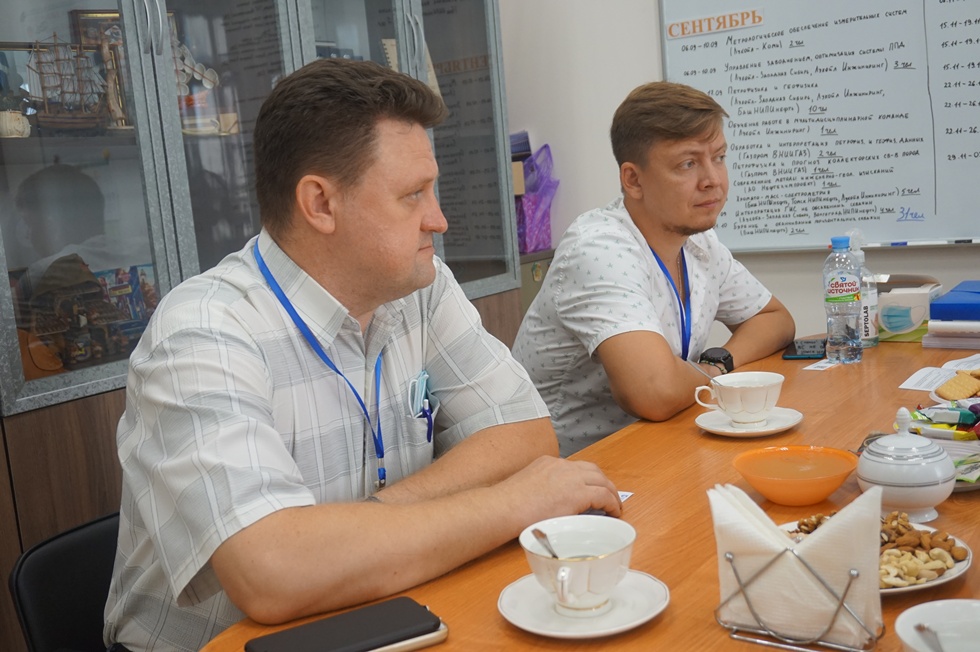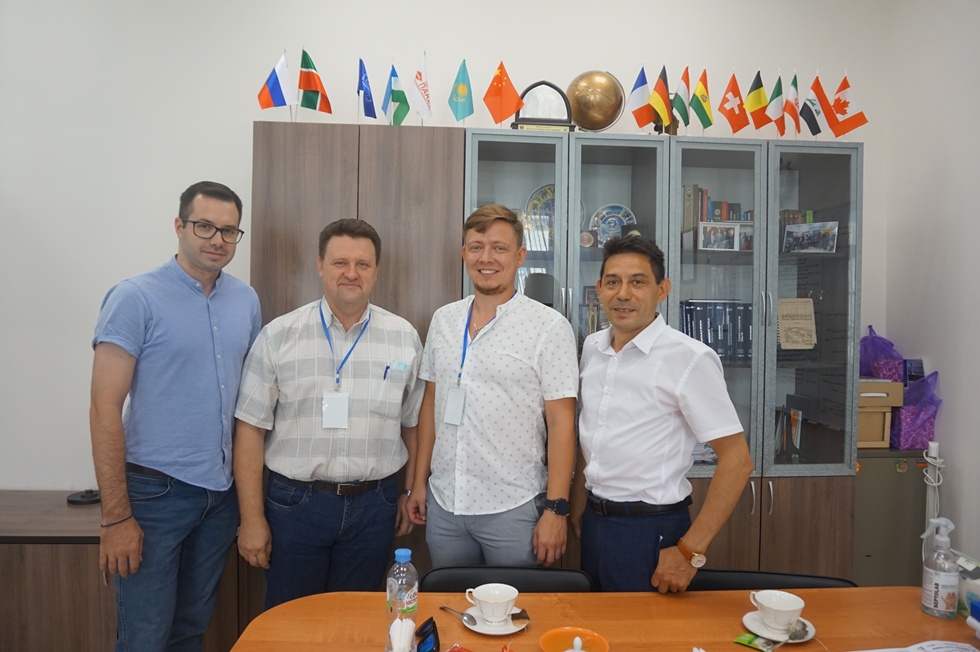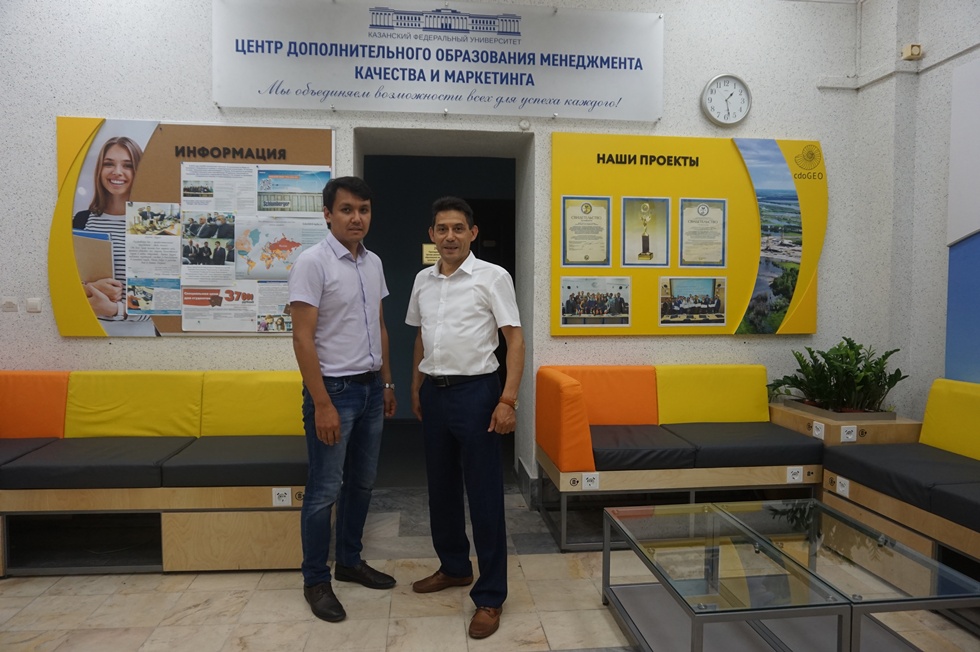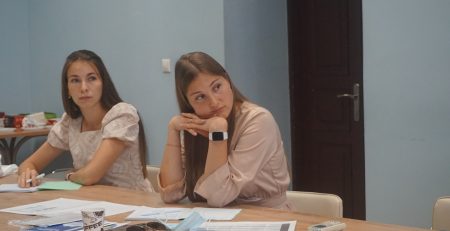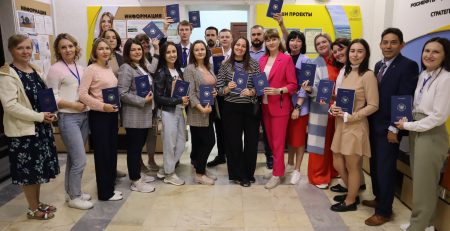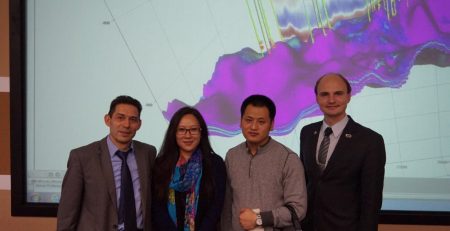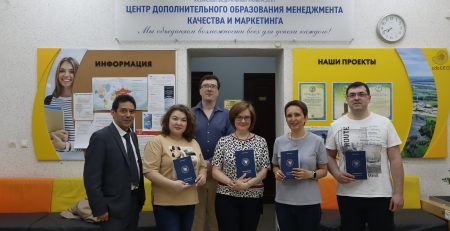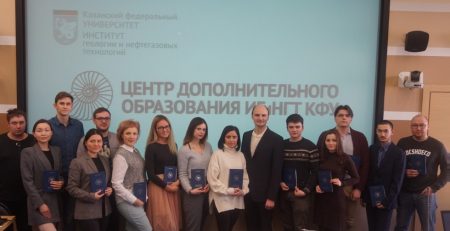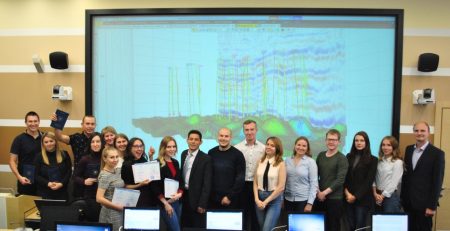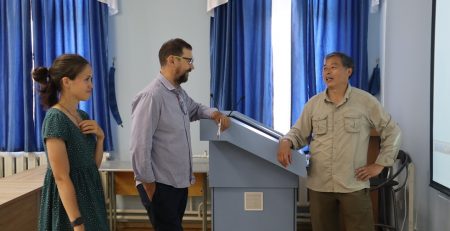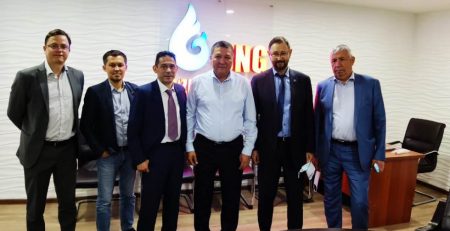IGPT KFU hosted a round table on Digitalization for Oil and Gas Industry
A round table “Actual Directions of Digitalization and Development of Neural Network Technologies for Oil and Gas Industry” was held at the Institute of Geology and Petroleum Technologies of Kazan Federal University within the framework of the «Rational development of the planet’s liquid hydrocarbon reserves” World-class Research Center (WCRC) .
Scientists and practitioners in the field of hydrocarbon production and the use of information technologies, experts in the field of digitalization of prospecting, exploration and development of oil and gas fields from leading companies and universities took part in the event, including: Gubkin Russian State University of Oil and Gas, Skolkovo Institute of Science and Technology, Ufa State Petroleum Technical University, which together with Kazan Federal University are part of the WCRC, as well as Innopolis University, PJSC Tatneft, RN-BashNIPIneft LLC, TGT Oilfield Services, Gazpromneft STC LLC, Emerson Automation Solutions, Dassault Systems, Tota Systems LLC.
The general theme of the event is aimed at discussing the latest trends in digitalization and the use of artificial intelligence algorithms in the oil and gas sector, successful cases and innovative proposals, as well as the formation of supra-professional digital competencies among employees of oil and gas enterprises.
Opening the round table, Sergey Usmanov, Senior lecturer of the Department of Geophysics and Geoinformation Technologies of IGPT KFU, outlined the main objectives of the event.
“During the two days of the round table we will consider the issues of modern approaches to the storage and processing of geological and field information, the creation of effective information systems for monitoring and optimization of the development of oil and gas fields, robotization of processes and the use of unmanned devices for solving problems of prospecting, exploration and development of oil and gas fields”, says Sergey Usmanov. “The round table is intended to become a platform for demonstrating proposals in the field of digital solutions to potential consumers from the oil and gas sector and establishing links between scientific groups, promising start-ups and oil and gas companies.”
Welcoming the participants of the round table, Danis Nurgaliev, Vice-Rector for Oil and Gas Technologies, Environmental Management and Geosciences, Director of the Institute of Geology and Petroleum Technologies of the Kazan Federal University, outlined digitalization as the main trend of the modern world.
“The world has already entered the era of digitalization,” says Danis Nurgaliev. Now it is possible to create smart oilfields controlled by artificial intelligence (AI). However, today there is no main component of this system, a cheap sensor, which is installed in each well and able to send very important data to the AI control center, the amount of oil, gas, water produced, their composition. The composition of water and oil is important for reservoir simulation models verification. The new challenge of our time is the development of hydrogen energy. Russia can become a leader in the supply of hydrogen fuel to the world market, using the oil and gas industry for hydrogen production and applying digitalization technologies.”
During the conference, the participants of the round table discussed advanced training of oil and gas specialists in the field of information technology. These tasks at IGPT are successfully performed by the Center for Advanced Training, Quality Management and Marketing (CdoGEO) of the Kazan Federal University, which is also part of the World-class Research Center (WCRC).
Within the framework of the round table, Ildus Chukmarov, Deputy Director of IGPT for Marketing, Director of CdoGEO, held meetings with the conference participants, employees of USPTU and the Gazpromneft Scientific and Technical Center.
“The topic of digitalization is of great importance for the oil and gas industry,” says Ildus Chukmarov. Today the conference brought together leading experts, most of whom are also partners of CdoGEO. We have discussed the implementation of joint courses based on developments and solutions within the framework of the WCRC with the representatives of USPTU, Associate Professor of the Department of Electrical Engineering and Electrical Equipment of the Enterprise Pavel Khlyupin and Associate Professor of the Department of Geology and Exploration of Oil and Gas Fields Alexander Chizhov. We have talked about creating a new educational project based on an integrated combined digital model of an oil and gas field with the Head of the Competence Center for Cognitive Technologies, Viktor Kotezhekov”
Pavel Khlyupin noted the importance of joint work on the creation and implementation of advanced training programs.
“As part of the WCRC, we have tasks to prepare courses for advanced training and professional retraining,” says Pavel Khlyupin. “This collaboration will undoubtedly provide high-quality and effective FVE programs, promote the exchange of experience and ideas.”

